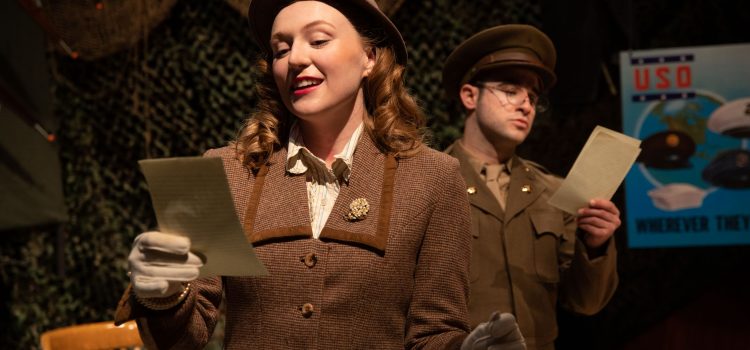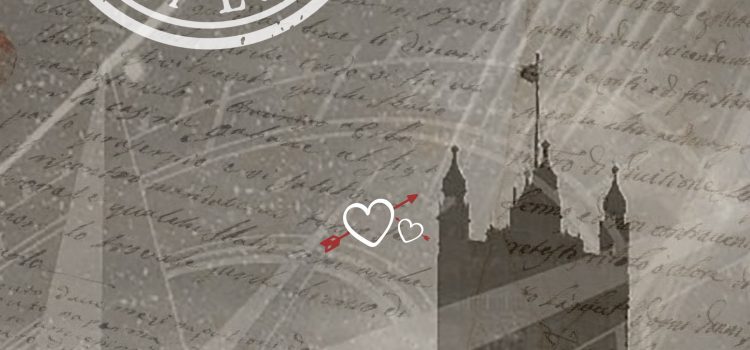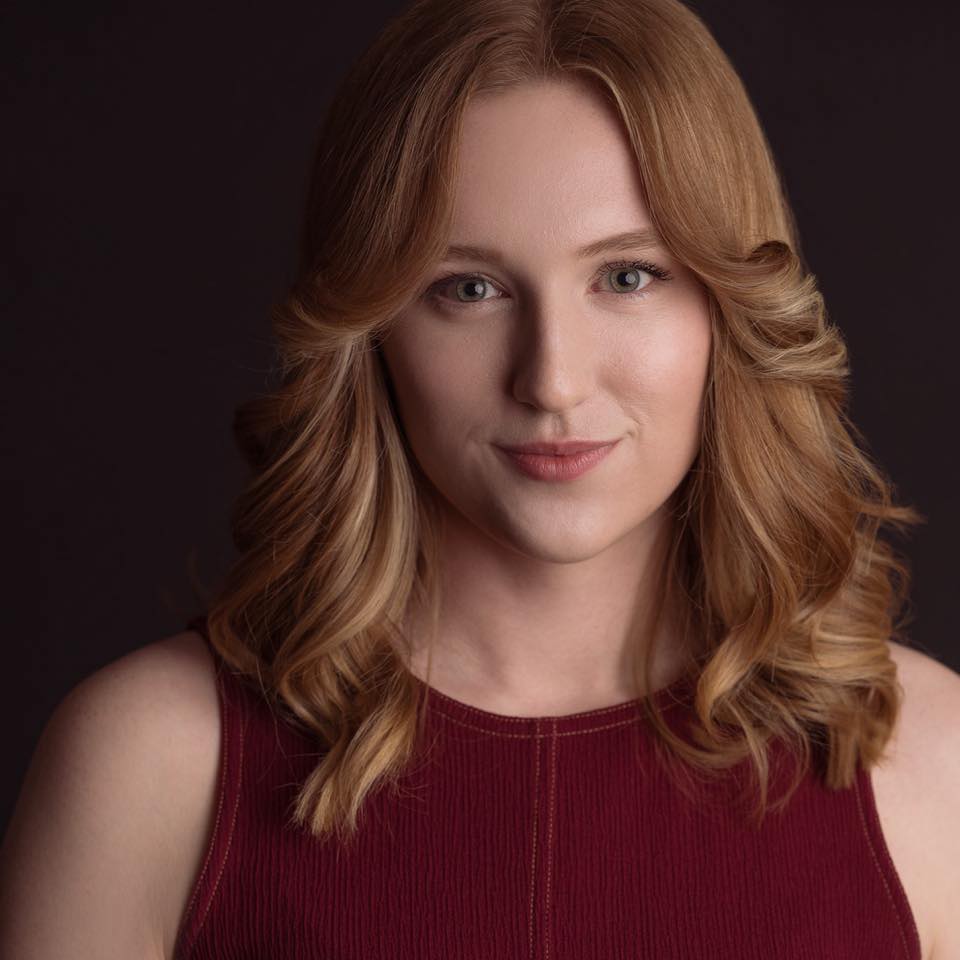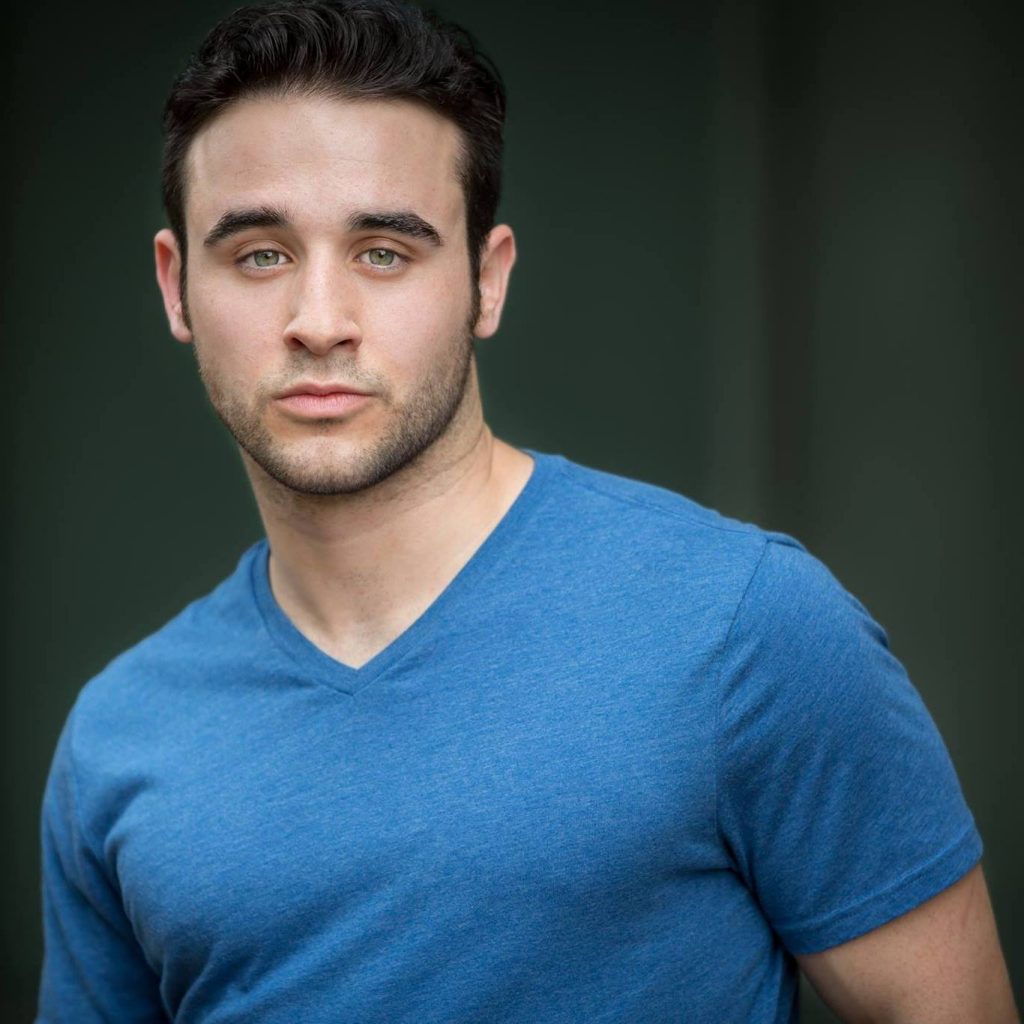By Lynn Venhaus
Playwright Ken Ludwig uses the written word like music in a symphony as his love letter to his parents, and actors Ryan Lawson-Maeske and Molly Burris make the heart-tugging “Dear Jack, Dear Louise” sing.
Now playing from June 9 to June 26 at the New Jewish Theatre, this dramatic comedy is an unexpected pleasure from its look back at an era of “The Greatest Generation” to its intimate love story that reinforces the power of human connection, no matter how many miles between.
With the help of the expressive performers who make the written words leap off the stationery, director Sharon Hunter has moved the pair around just enough in the confined space to keep focus on the two lonely souls forging a deep, long-lasting bond through war-time correspondence.
The challenge for Lawson-Maeske and Burris is to engage without making reading letters static, and they showcase their substantial skills for creating sincere portraits of two different personalities reaching out.
Lawson-Maeske, a two-time St. Louis Theater Circle awards nominee, for “Tribes” in 2018 and “Photograph 51” in 2020, is endearing as reserved U.S. Army Captain Jack Ludwig, stationed at a military hospital in Oregon, who writes a formal letter to Louise Rabiner, an aspiring dancer and actress in New York City, because his father suggested it. The dads know each other.
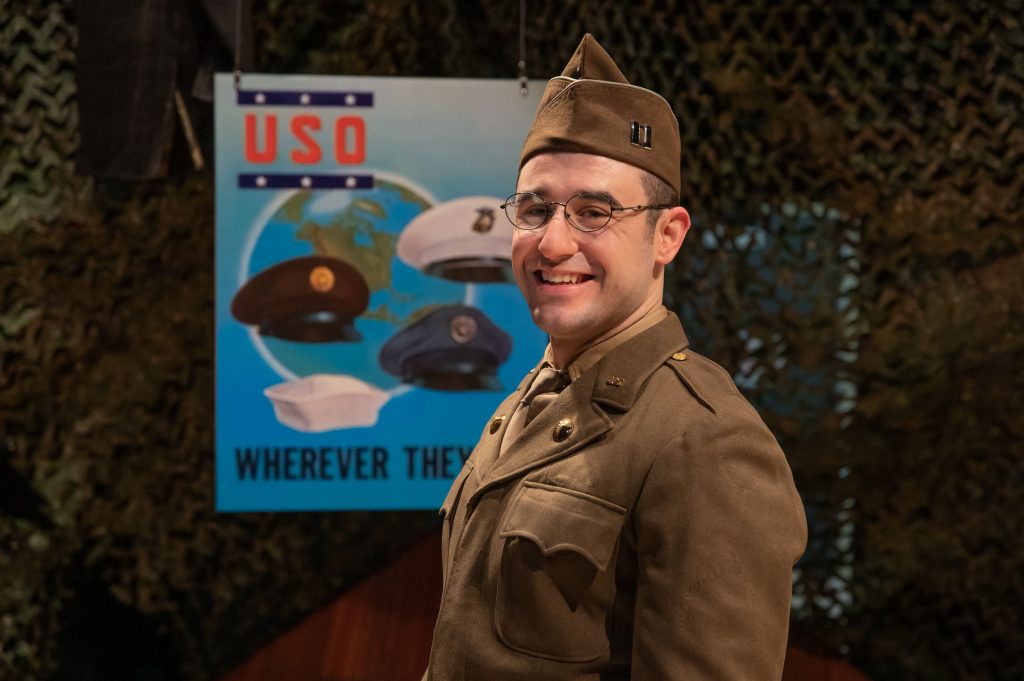
From her first response, it’s clear that Louise is a live wire, with a flair for the dramatic, and is without a filter in her missives. Webster Conservatory graduate Molly Burris seamlessly projects the Brooklyn-born chorus girl’s curiosity, grit, and sunny nature.
The outgoing Louise coaxes the more introverted doctor to share more about himself, and gradually he opens up. Thus begins a long-distance friendship that eventually turns into love over the course of several years, — 1942-1945, to be exact.
As the war escalates, so do Jack’s duties and thus, his presence in increasingly dangerous situations, as he is sent to the European front before they’ve had a chance to meet. His optimism has dissipated as he treats injured soldiers, and while Louise’s spunkiness keeps his spirits up through her caring, cheerful words, this is a love story set against the front lines of war.
As young people in their 20s, the two find common ground as pen pals, sharing their innermost thoughts and feelings. One of the warmest, most humorous exchanges is Louise’s adventures meeting Jack’s parents, his sister Betty, and his mother’s many sisters in his hometown of Coatesville, Pa.
Louise’s accounts of her audition successes and disappointments are vivid, and Jack’s frustration at not being granted a leave so they can finally meet to fulfill their plans for dinner and a show – and dancing – is palpable. Those plans keep being delayed, even by virtue of the story that we know has a happy ending, building suspense and tension as time passes (or runs out).
Before personal ads, email, texts and dating apps, people often met through acquaintances. Letters were the most common way to communicate across the miles – and have been explored eloquently in many pop culture hallmarks, like Ken Burns’ Civil War documentary, the James Stewart-Margaret Sullavan romantic comedy “The Shop Around the Corner” (remade into “You’ve Got Mail” with Tom Hanks and Meg Ryan in 1998) and the true-story based “84 Charing Cross Road” starring Anthony Hopkins and Anne Bancroft in 1987.
Quaint by today’s standards, “Dear Jack, Dear Louise” is a sentimental journey that evokes warm memories of family members who developed similar relationships. My parents first met at a local teen hangout, then wrote letters when my dad was on a naval ship in the Pacific Ocean during the Korean War and married upon his return.
Jack and Louise are relatable, therefore we maintain interest – but that’s largely in part because sparks fly between Lawson-Maeske and Burris as they are in their rooms, no small feat. You can feel the anticipation of receiving a letter, the exhilaration after the mail arrives, and how worried Louise is when she doesn’t hear from Jack while he’s treating the wounded at other locations.
Dunsi Dai’s scenic design creates a character-driven tableau through their living quarters – conveying that he’s fastidious and she’s flamboyant. He effectively contrasts Jack’s austere military barracks with Louise’s colorful, cramped boarding house room. Vintage posters of plays and movies further enhance the old-timey ‘40s feel. To move our eyes upward, Dai has hung some of their outfits.
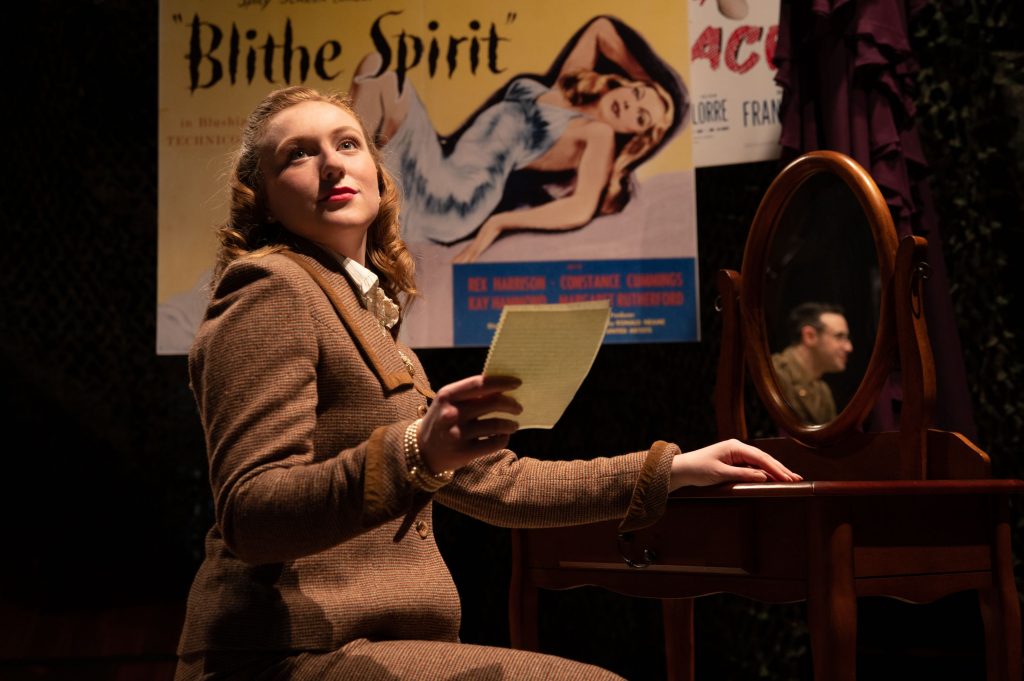
The technical elements are topnotch, with Amanda Were’ sound design setting the mood with retro Big Band music and creating harrowing war action through battlefield action. Daniel LaRose’s lighting design is warm and welcoming, and Michele Friedman Siler’s period costume design successfully captures the character’s personal style.
The play’s lyrical qualities are no coincidence. Ludwig, who studied music at Harvard with Leonard Bernstein, has written the smash-hit farce “Lend Me a Tenor,” nine-time Tony Award winner in 1989 and its revival in 2010, as well as the book for the Gershwin musical “Crazy for You” in 1992 and the hilarious comedy “Moon Over Buffalo” in 1995. All are set in showbiz in another decade, so he is comfortable in the World War II setting. Ludwig is a two-time Olivier Award winner, by the way.
By drawing from hundreds of letters between his mother and father, Ludwig has found the poetry in basic connection, which is timeless and also couldn’t be timelier. The well-constructed play premiered in December 2019 – you know, the Before Times – right before the world turned upside-down. If ever a contemporary work of art tapped into ordinary people having simple yet profound daily experiences to remind us of what connects us all, it is this show.
“Dear Jack, Dear Louise” delivers a joyous show, with just two people reading letters to create an honest, heartfelt moment. Expect that tears will come – get that tissue ready.
New Jewish Theatre presents Ken Ludwig’s “Dear Jack, Dear Louise,” from June 9 through June 26, with performances on Thursdays at 7:30 p.m., Saturdays at 4 p.m. and 8 p.m., and Sundays at 2 p.m., at the Wool Studio Theatre at the JCCA’s Performing Arts Center, 2 Millstone Campus Drive. For more information, call the box office at 314-442-3283 or visit newjewishtheatre.org

Lynn (Zipfel) Venhaus has had a continuous byline in St. Louis metro region publications since 1978. She writes features and news for Belleville News-Democrat and contributes to St. Louis magazine and other publications.
She is a Rotten Tomatoes-approved film critic, currently reviews films for Webster-Kirkwood Times and KTRS Radio, covers entertainment for PopLifeSTL.com and co-hosts podcast PopLifeSTL.com…Presents.
She is a member of Critics Choice Association, where she serves on the women’s and marketing committees; Alliance of Women Film Journalists; and on the board of the St. Louis Film Critics Association. She is a founding and board member of the St. Louis Theater Circle.
She is retired from teaching journalism/media as an adjunct college instructor.

